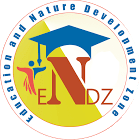Speech for International Day of Persons with Disabilities
[Greeting]
Good [morning/afternoon/evening], everyone,
It is an honor to stand before you today on International Day of Persons with Disabilities, a day that carries profound significance for the global community. Today, we come together to reflect on the challenges faced by persons with disabilities, to celebrate their achievements, and, most importantly, to renew our commitment to a world where every individual, regardless of ability, can participate fully, equally, and with dignity.
[Awareness and Importance of the Day]
On this day, established by the United Nations in 1992, we are reminded that more than 1 billion people around the world—roughly 15% of the global population—live with some form of disability. This is not a minority group; it is a community that spans across all ages, genders, races, and socioeconomic backgrounds. Yet, despite their numbers, people with disabilities often face barriers that limit their opportunities for education, employment, healthcare, and social inclusion.

International Day of Persons with Disabilities is not just a day of commemoration; it is a call to action. It is a day to increase awareness, to advocate for the rights of people with disabilities, and to push for the systemic changes needed to remove the obstacles that hinder full participation in society.
[Theme and Focus]
Each year, the United Nations assigns a theme to this day. The theme for 2023 is: “Transformative Solutions for Inclusive Development: The Role of Innovation in Fuelling an Accessible and Equitable World.” This theme highlights the critical role that innovation and technology play in creating a more accessible and inclusive world.
Today, we are living in an age of unprecedented technological advancement. From assistive devices that help individuals with mobility challenges, to digital platforms that enable communication for those with speech impairments, innovation is a powerful tool in breaking down barriers. However, innovation must not only be about creating new technology—it must also focus on changing mindsets, challenging stereotypes, and ensuring that accessibility is integrated into every aspect of society.
[The Reality of Barriers]
Despite these advancements, we cannot ignore the reality that persons with disabilities continue to face immense challenges. Many still live in environments that are not accessible, whether it is physical spaces like buildings and public transportation, or digital spaces that are not designed to be user-friendly for those with visual, auditory, or cognitive impairments. People with disabilities are often excluded from job opportunities, with employment rates much lower compared to the general population. Moreover, they may experience stigma, discrimination, or neglect in their communities.
The barriers they face are not just physical or logistical—they are attitudinal. Misconceptions about disability often lead to prejudice, exclusion, and a lack of opportunity. This is where each one of us has a role to play: in our workplaces, in our schools, in our communities, and within ourselves. We must strive to create a society where differences are not only accepted but celebrated. A society where accessibility and inclusion are not afterthoughts, but fundamental rights.

[Celebrating Progress and Achievements]
At the same time, we must acknowledge the tremendous progress that has been made. Across the globe, persons with disabilities are leading the way in fields like sports, arts, politics, education, and business. They are breaking records, creating innovative solutions, and inspiring others with their resilience and achievements. Whether it is a Paralympic athlete competing at the highest level, a scientist who has developed life-changing technologies, or an advocate who is challenging systems of inequality—these are just a few examples of the immense potential that exists when we create an inclusive society.
We must continue to uplift and support individuals with disabilities, celebrate their contributions, and ensure that they have access to the same opportunities as everyone else.
[The Role of Every Individual]
Today, as we reflect on the progress we’ve made, let us also recognize the work that remains. A truly inclusive society requires all of us—governments, organizations, and individuals—to play our part. Whether it’s ensuring our public spaces are accessible, advocating for inclusive education, or simply challenging our own biases and assumptions, each of us can contribute to a more inclusive world.
For those of us who are not living with a disability, it is important to remember that disability is not something that only affects others—it can affect anyone, at any time. Whether due to age, illness, or an accident, disability is a universal experience. This perspective calls for greater empathy, understanding, and, most importantly, action.
[Conclusion]

In closing, I urge all of us to think about what it means to create a world where everyone, regardless of ability, can thrive. Let this day not only be a moment of reflection, but a starting point for the changes we can make today and in the future. Let us commit to building a world that values accessibility, inclusion, and equality for all people.
Together, we can create a society where no one is left behind, where everyone has the opportunity to live, work, and thrive with dignity and respect. A society where disability is not seen as a barrier, but as part of the rich diversity that makes us stronger.
Thank you.
speech disability#disabilityday#day#Day#disable problems vscode#problems vcd codeode#pcod#kaal#axident#aksident#hospital#disable man#veel chair#veel#unduvanty#vantyy meaning#
